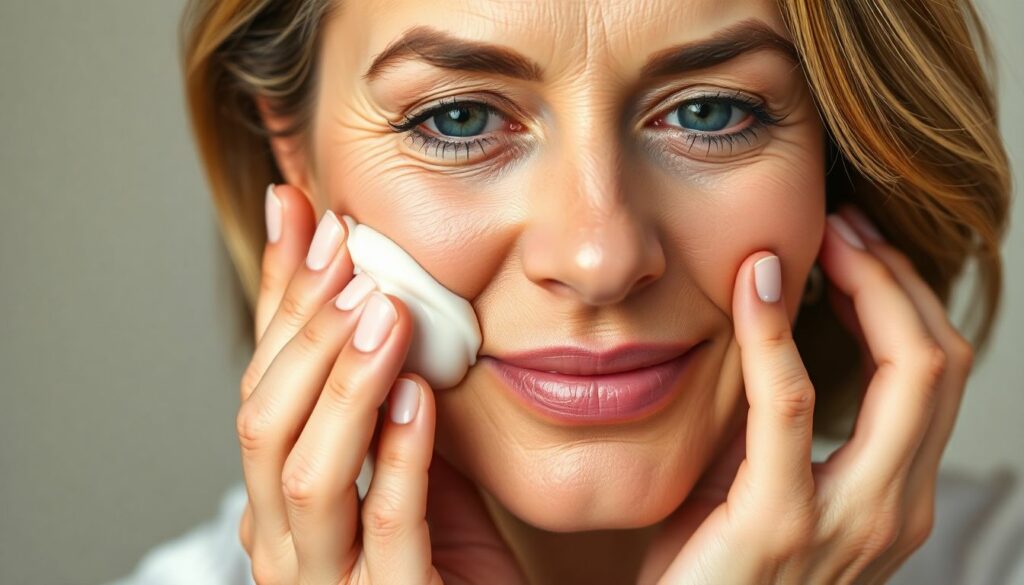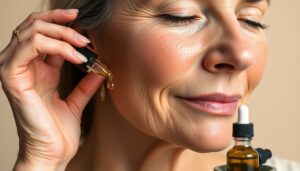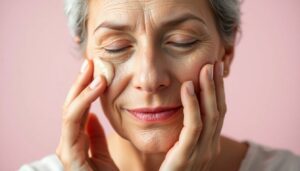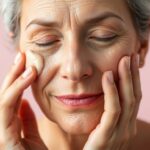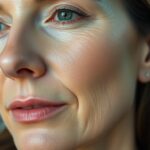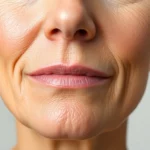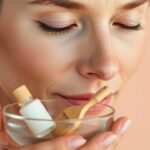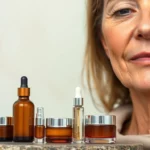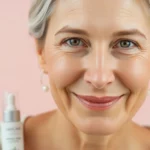Would like to maintain that youthful glow? As we age, our skin changes. Its moisture evaporates and it becomes more vulnerable to wrinkles. Finding the perfect moisturizer is important for healthy, happy skin. How to Choose the Right Skin Moisturizer for Your Aging Skin
These characteristics impact how we treat our skin.
Aging changes our skin. It becomes thinner and yields less oil. As a result, we develop dryness and wrinkles. Hyaluronic acid is exceptional for adult skin in need of hydration.
Why Do Dry Skin and Aging Skin Go Hand in Hand?
Those keep skin plump: collagen, elastin and hyaluronic acid. They are produced less as we get older. That causes skin to become less elastic and less hydrated. Ceramides are also important. They assist with preserving the skin’s barrier. Loss of ceramide levels leads to dry skin.
Common Age-Related Skin Issues
As we age, we develop wrinkles and fine lines. You may also notice age spots and dryness. Another issue is loss of elasticity. It can be managed, though, with proper moisturization. It diminishes these symptoms of aging. Hydration is key, so keeping the skin moisturized means a lot!
What to Look For in Moisturizers for Aging Skin
There are specific ingredients that work wonders on aging skin. Here is what to watch out for when picking a moisturizer. These components can help you with the difference!
The Hydration Hero: Hyaluronic Acid
Hyaluronic acid has great hydration properties. It pulls moisture into the skin. Think of it like a sponge. There are different molecules of this acid and the dimensions matter how deep they get in. Smaller molecules go deeper.
Retinoids: The Gold Standard (and Focus) of Anti-Aging
And retinoids increase collagen production. They also accelerate cell turnover. This helps reduce wrinkles. It’s worth noting that retinol is one common type of retinoid. There are prescription-strength options as well. There are some side effects that might arise, such as dryness. Use a low concentration to begin with. Apply it at night so as not to cause sun sensitivity.
The Importance of Peptides for for the Youthful Skin
Collagen production is encouraged by peptides. This improves skin firmness. They’re like little messengers telling your skin to create more collagen. Various types of peptides provide different advantages.
Ceramides: Replenishing the Skin Barrier
Ceramides rebuild the skin’s barrier. They prevent moisture loss. This helps the skin stay hydrated and healthy. “Ceramides are like glue that holds skin cells together,” he says.
Antioxidants: Helping Counteract Free-Radical Damage
Antioxidants also defend skin against damage. Vitamin C and Vitamin E are good examples. Another good one is green tea extract. They combat free radicals triggered by pollution and sun.
What Moisturizer Should You Use Depending on Your Skin Type?
Select a moisturizer according to your skin condition. What’s good for dry skin isn’t necessarily beneficial for oily skin. It’s important to find the right fit!
Dry Skin: Luxurious, Creamy Consistency
Dry skin wants rich creams and balms. Opt for emollients and occlusives. These help lock in moisture. Things such as shea butter and oils are helpful.
For Oily Skin: Light and Non-Comedogenic Formulas
Light moisturizers are essential for oily skin. Gel-based options or a lotion-based one are ideal. Avoid comedogenic varieties. That means they won’t clog pores.
Combination Skin: Harmonizing Hydration
Combination skin requires balanced moisture. Opt for a moisture that’s lightweight or not too greasy. Seek out products that hydrate and don’t trigger breakouts.
Sensitive Skin: Fragrance Free & Kind Formulations
Sensitive skin requires gentle formulas. Avoid fragrances and dyes. Seek soothing ingredients such as aloe vera and chamomile. Do patch tests to new products before applying it to all of your face.
How to Use Moisturizer in Your Anti-Aging Routine
Moisturizer is a vital part of * צייטו”ר. Used correctly, you will see the best results. A consistent routine is key!
Why It Is So Important to Clean and Moisturize
Cleansing sweeps away dirt and debris. It allows moisture to penetrate more readily. Never apply moisturizer without cleansing the skin first. A clean base is important.
(How and When To Moisturize)
Moisturize a minimum of twice daily. Do this in the morning and at night. Apply a moisturizer after showering or bathing. This makes it easier to lock in moisture while skin is damp.
How to Layer Moisturizer with Other Skin Care Products
Use skin care products from the right order. Apply thinner products first, such as serums. Finish with thicker creams. After moisturizing in the morning use a sunscreen.
Debunking Popular Misconceptions About Moisturizing Aging Skin
There are loads of myths about moisturizers and aging skin. Let’s dispel a few misconceptions. It is so important to know the truth!
Myth No. 1: Moisturizer erases wrinkles
Moisturizers may also help make wrinkles appear better. They are unable to get rid of them all together. It increases hydration — which makes skin plump, so less of them are visible.
Myth No. 2: Expensive moisturizers are better
Price does not always dictate quality. Just look at the ingredients rather than the price. What really matter are effective ingredients.
Myth #3: Oily Skin Doesn’t Need A Moisturizer
Oily skin can be dehydrated too. You’ll still want to use a lightweight moisturizer. It stabilizes oil output.
Conclusion
When it comes to choosing the best skin moisturizer for aging skin, it takes a little bit of know-how. Seek out powerful ingredients like hyaluronic acid, retinoids, and peptides. Make sure that you are using an appropriate moisturizer for your skin type. Hydration is essential for glowing, youthful skin. Take the time to experiment to see what feels best for you.
